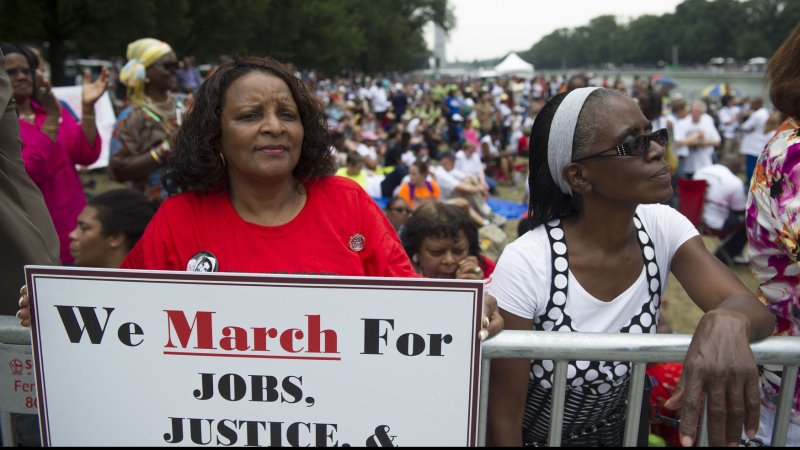PRINCETON, N.J., Aug. 28 (UPI) -- As in 1963, a majority U.S. blacks now say they believe whites have the advantage in the job market, a Gallup poll released Wednesday indicated.
The results, released on the 50th anniversary of the March on Washington, indicated 60 percent of blacks said they thought whites have better chances than blacks to get jobs while 39 percent said they thought blacks and whites have equal opportunities.















